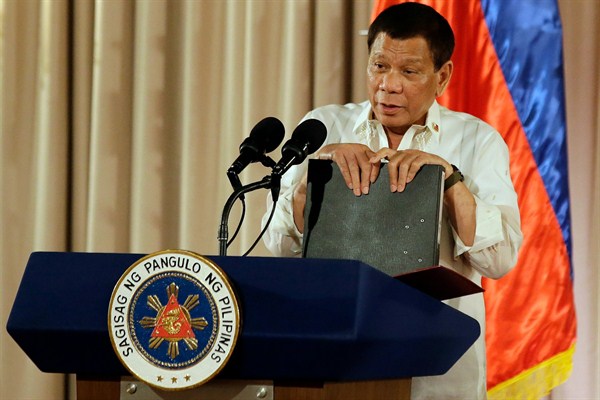Editor’s note: This article is part of an ongoing WPR series about workers’ rights in various countries around the world.
When Rodrigo Duterte was elected president of the Philippines in May 2016, the strongman who has made a name for himself in his ruthless war on drugs and crime also promised to deliver vast economic changes by restructuring the country’s labor economy. Millions of Filipino workers suffer from the precariousness of temporary, fix-termed contracts that keep them from enjoying the benefits of regular employment. In this email interview, Dr. Aries A. Arugay, associate professor of political science at the University of Philippines, explains how historical power inequities have largely prevented organized labor from redressing its grievances and how President Duterte has staked much of his credibility on rectifying this situation on behalf of the working class.
WPR: Does the Philippines have a strong history of labor protections, and how had the situation for workers evolved in the years before Duterte took office?

